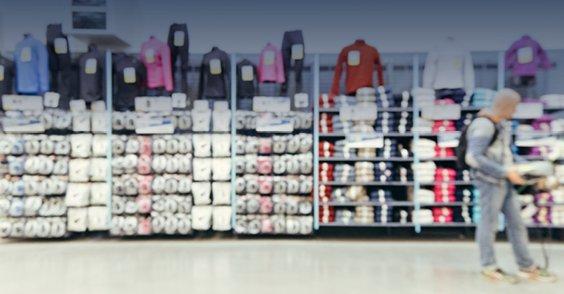
Sporting goods industry begins to adapt to new norms but challenging business environment continues
Thanks to the commitment and active participation of the people working in our industry, the WFSGI can now compare the results of the surveys for the last four months. The WFSGI intends to continue this exercise as long as the pandemic has an impact on the global sporting goods sector. The purpose remains to provide key insights to help manage the crisis and take decisions for the future.
The WFSGI President & CEO, Robbert de Kock commented: “I am pleased to learn that there is considerable improvement when it comes to supplying the sector with goods and available labor forces. Also, globally speaking the demand has slightly improved. But times remain challenging especially for the sporting goods business in the Americas where the globally positive logistics and supply trends are not mirrored.
It seems that our industry slowly adapts to the new normal as less companies consider social distancing measures or working from home are having an impact on their work force. Similarly, a decreasing number of respondents are challenged by legal measures.
However, there is a still a very high number (86%) of respondents who see their business being impacted by this pandemic. This also leads to a large majority (94%) considering transforming their supply chains and close to 70% rethinking sourcing priorities. This will have an impact on the industry.
Looking ahead, it is promising that respondents are more optimistic than in previous months regarding the recovery of their business. But it remains crucial to note that, as the pandemic goes on, businesses do expect to need more time to recover."
To provide you with the best possible information, we would encourage all interested sporting goods companies to participate in the August’s pulse survey, this survey is open to any sporting goods company no matter if you are a WFSGI member or not. No individual respondents information or company data is requested, the survey is completely anonymous and takes no longer than 3 minutes to be filled in.
Participate in the WFSGI August 2020 Pulse Survey
EXECUTIVE SUMMARY OF THE WFSGI COVID-19 IMPACT SURVEY JULY EDITION
Manufacturing Companies Responses:
DEMAND: There is very little change on the demand side compared to last month. Most important, 25% of respondents don’t face any decreasing orders at all while the situation in Northern America seems to be more challenging compared to last month.
LOGISTICS: Only 50% of respondents face material shortage, that’s a considerable improvement. The trend shows that the lack of shipping capacities, delayed finished goods transportation and closure of factories are less of an issue.
SUPPLY: A slightly positive trend for most regions has been assessed. But again, more businesses than last month face supply chain disruption in Northern America.
LABOR: For the first time since the survey is made, more than half of the respondents are no longer challenged by labor shortage. Namely travel and public transportation restrictions are less of an issue and it also seems that companies have adopted to social distancing measures. However, the pandemic is still impactful which is shown by the increasing forced company closures and the stable amount of companies with staff being absent due to a Covid-19 infection.
LEGAL: For the first time in July more respondents to this survey have indicated to be not impacted by regulatory requirement which is a positive development.
FINANCE: While cash flow issues have been of high concern so far, the trend showed clearly that company are overcoming this challenge. In July there are only 48% of respondents remained dealing with cash flow challenges.
REGRESSION: The pandemic is still forecasted to have an impact on 86% of respondent’s businesses which is a slight increase compared to last month. Still nearly one third of respondents expect their business to go down by 50%.
Europe and Northern America remain mostly concerned as over 70% expect less business which is an increase of around 10% compared to last month.
RECOVERY: There is an optimistic trend as no respondents at all didn’t expect any rebound of their business at all in July. With regard to the time frame necessary for the recovery, respondents are slightly more pessimistic as close to 50% think that their business will need more than one year.
MEASURES: The most popular options are adopting lean production and automation. There is a sharp decline of companies consolidating production and benefitting from government loans.
Retail and Brand Companies Responses:
IMPACT MITIGATION: Increasing online sales remains unchanged the most chosen option to mitigate the impact of the pandemic. 76% of respondents consider this measure to help their business.
REPERCUSSION: The trend clearly shows that consolidating the supply chain is constantly gaining in importance. But also defering payments is again of relevance to over 30% of respondents.
PRIORITY: The order of priorities remains unchanged compared to the last months. However, the trend seems to announce cash position is further loosing importance while employees’ health is slightly more important than last month.
EXPECTATIONS: Flexibility remains the most important requirement for 90% of the brand companies. Noteworthy: Efficiency becomes more important than Stability.
TRANSFORMATION: Transformation is likely to take place as only 4% of participating businesses do not foresee any changes in their supply chain at all. Close to 30% more respondents consider lean and adaptive supply chain transformation in July than in June.
SOURCING PRECEDENCE: The impact of the pandemic is also mirrored in this part of the survey: only a little less than 30% of respondents are not at all rethinking their sourcing priorities. The trend goes on that local to local sourcing is getting more attractive.
MARKET TRENDS: Environmentally friendly products are still topping the list. Companies are no longer attaching the same importance to price points centric trends which was the most important option in May but is now the least expected trend. A radical change is also noted with regard to functional driven trends: it is the second most important trend this month while it was the least important trend in the past months.
PREVAILING SPORTS: Outdoor remains the most prevalent sport according to the industry but cycling is closing the lines
The WFSGI is the world authoritative body for the sports industry officially recognized by the International Olympic Committee (IOC) as the industry representative within the Olympic Family. The WFSGI is an independent association with no objective of economic character for its own gain and formed by sports and sports-inspired leisure brands, manufacturers, suppliers, retailers, national/regional federations, industry and trade associations and all sporting goods industry related businesses. Our purpose is to represent and inspire the industry, to invest in innovation, promote physical activity, support free trade and do business in an ethical and sustainable way.
As part of our mission we facilitate legally permissible communication and cooperation to enhance competitiveness and innovation. We seek to positively influence the way our products are manufactured, with a focus on people involved in the manufacturing and the environment. Our members are steering the direction of the industry. The future of the sporting goods industry begins with the professional networks that we support.
WFSGI – World Federation of the Sporting Goods Industry
Talgut-Zentrum 27
CH3063 Ittigen/Bern
Telefon: +41 (31) 9396061
Telefax: +41 (31) 9396069
http://www.wfsgi.org
E-Mail: mmagnus@wfsgi.org
![]()




